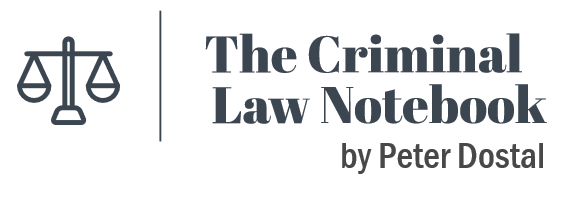Selecting Additional and Alternate Jurors
- < Procedure and Practice
- < Trials
- < Juries
General Principles
It is generally accepted that only 12 jurors can decide a case. However, more than 12 jurors can hear a case.
631.
...
Alternate jurors
(2.1) If the judge considers it advisable in the interests of justice to have one or two alternate jurors, the judge shall so order before the clerk of the court draws out the cards under subsection (3) or (3.1).
Additional jurors
(2.2) If the judge considers it advisable in the interests of justice, he or she may order that 13 or 14 jurors, instead of 12, be sworn in accordance with this Part before the clerk of the court draws out the cards under subsection (3) or (3.1).
...
R.S., 1985, c. C-46, s. 631; R.S., 1985, c. 27 (1st Supp.), s. 131; 1992, c. 41, s. 1; 1998, c. 9, s. 5; 2001, c. 32, ss. 38, 82; 2002, c. 13, s. 52; 2005, c. 32, s. 20; 2011, c. 16, s. 7.
– CCC
Trying of issues of indictment by jury
652.1 (1) After the charge to the jury, the jury shall retire to try the issues of the indictment.
Reduction of number of jurors to 12
(2) However, if there are more than 12 jurors remaining, the judge shall identify the 12 jurors who are to retire to consider the verdict by having the number of each juror written on a card that is of equal size, by causing the cards to be placed together in a box that is to be thoroughly shaken together and by drawing one card if 13 jurors remain or two cards if 14 jurors remain. The judge shall then discharge any juror whose number is drawn.
2011, c. 16, s. 13.
– CCC
Selection of Alternate Jurors
Substitution of alternate jurors
642.1 (1) Alternate jurors shall attend at the commencement of the presentation of the evidence on the merits and, if there is not a full jury present, shall replace any absent juror, in the order in which their cards were drawn under subsection 631(3).
Excusing of alternate jurors
(2) An alternate juror who is not required as a substitute shall be excused.
2002, c. 13, s. 57; 2011, c. 16, s. 11.
– CCC
